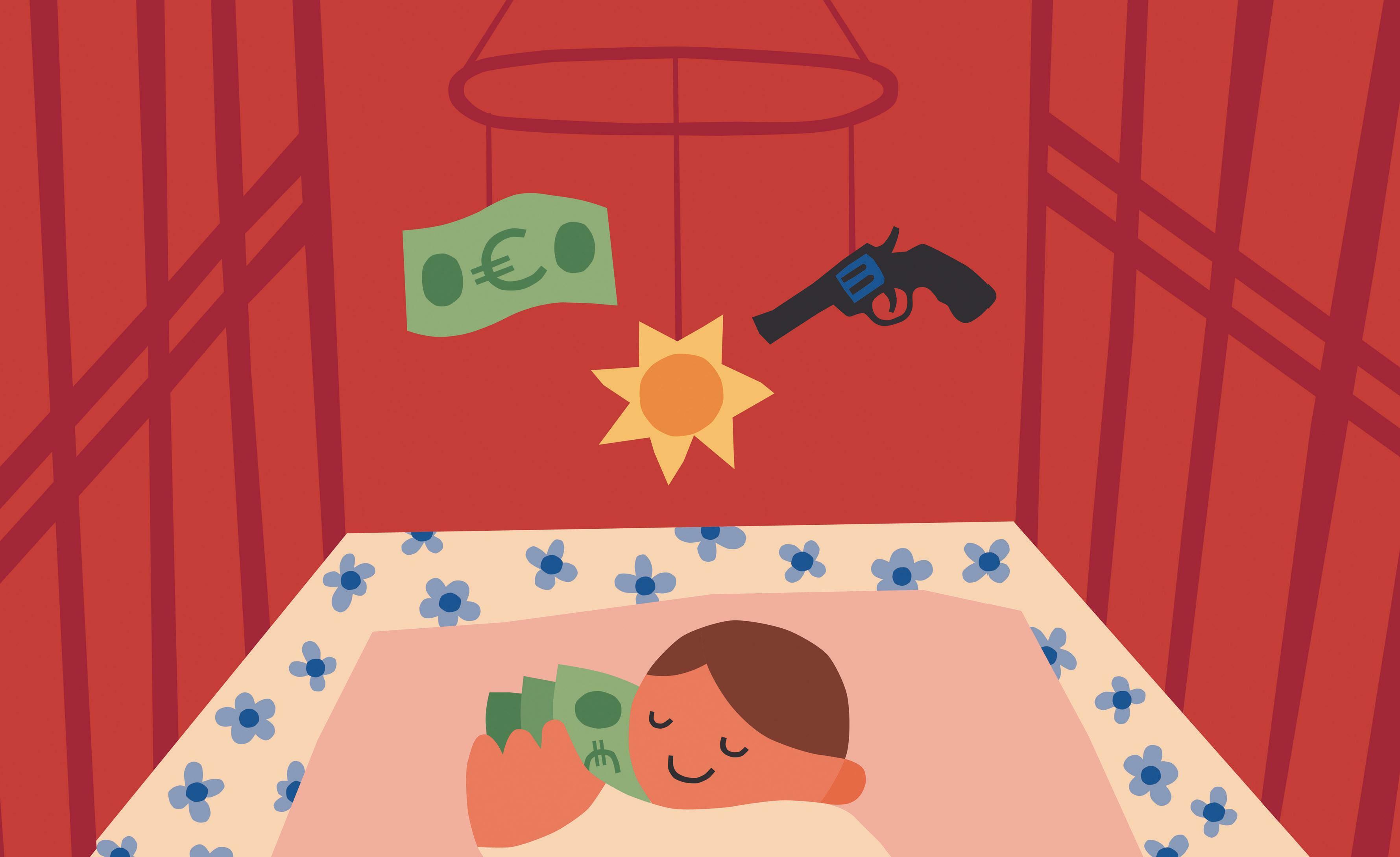
BEFORE DAWN ON A JUNE MORNING in 2010, police burst through the high security gates of a palazzo belonging to a notable mafia family on the edge of a small town in Calabria. As agents swarmed through the building, turning the place over, family members moved frantically to hide any evidence. Maria, the family's 12-year-old daughter, was given a page ripped from a notebook. It was a list of debts owing. She was told to hide it: "Put it in your knickers, they won't touch you." Her brother Cosimo, 14, watched in helpless rage as his father, mother, even his grandmother, were handcuffed and led out to the waiting police cars.
After the arrests, Cosimo was the only male family member outside prison, and it became his responsibility to collect money for the lawyers' fees. He was a baby boss with his own driver, visiting local businesses who were on the family's books, and demanding payment with menaces. "He was recognised as the boss," says journalist Dario Cirrincione. "If he went to a bar in the village, older men would get up to greet him. People waited on him, drove him around, did anything he needed. This sort of treatment turns these kids into little kings." The Calabrian mafia, the 'Ndrangheta, is based on family groups in small towns along the coastline of Italy's toe. The area is littered with half-built factories, projects paid for by state development funds and abandoned once the 'Ndrangheta got its hands on the money. Since taking control of the port at Gioia Tauro on the west coast, the organisation has become one of the biggest importers of cocaine to Europe.
The authorities have made sweeping arrests over the past decade, and staged a series of maxi trials in reinforced bunkers, involving hundreds of defendants. But the family structure means the organisation is hard to dismantle. As fathers and grandfathers are serving life sentences, many in high-security jails, the younger members are starting their criminal careers ever earlier.
This story is from the {{IssueName}} edition of {{MagazineName}}.
Start your 7-day Magzter GOLD free trial to access thousands of curated premium stories, and 9,000+ magazines and newspapers.
Already a subscriber ? Sign In
This story is from the {{IssueName}} edition of {{MagazineName}}.
Start your 7-day Magzter GOLD free trial to access thousands of curated premium stories, and 9,000+ magazines and newspapers.
Already a subscriber? Sign In

If kids get protected from online harm, how about the rest of us?
The Australian government has proposed a ban on social media for all citizens under 16.

'It's not drought - it's looting'
Spain is increasingly either parched or flooded - and one group is profiting from these extremes: the thirsty multinational companies forcing angry citizens to pay for water in bottles.

Life in the grey Zone
Neonatal care has advanced so far that babies born as early as 21 weeks have survived. But is this type of care always the right thing to do?

Out of tune? Band Aid under fire for Africa tropes as it turns 40
Forty years ago this month, a group of pop stars gathered at a west London studio to record a single that would raise millions, inspire further starry projects, and ultimately change charity fundraising in the UK.

Deaths shine spotlight on risks of drinking on party trail
Vang Vieng is an unlikely party hub. Surrounded by striking limestone mountains and caves in central Laos, it morphed from a small farming town to a hedonistic tourist destination in the early 2000s.

Different strokes My strange and emotional week with an AI pet
Moflin can develop a personality and build a rapport with its owner - and doesn't need food or exercise. But is it comforting or alienating?

Strike zone Waking up to the rising threat of lightning
When the Barbados National Archives, home to one of the world's most significant collections of documents from the transatlantic slave trade, reported in June that it had been struck by lightning, it received sympathy and offers of support locally and internationally.

Cheap pints and sticky carpets: the old-school pub is back
In the Palm Tree pub, east London, barman Alf is taking only cash at the rattling 1960s till.

Brain gain Can a radical tax scheme convince the country's brightest to stay?
In the autumn of 2018, I moved to Lisbon for a month-long course at the Universidade .de Lisboa.

Fear and sympathy in small town divided over asylum camp
A year after anti-immigration riots, a site for asylum seekers faces hostility while some locals try to help new arrivals